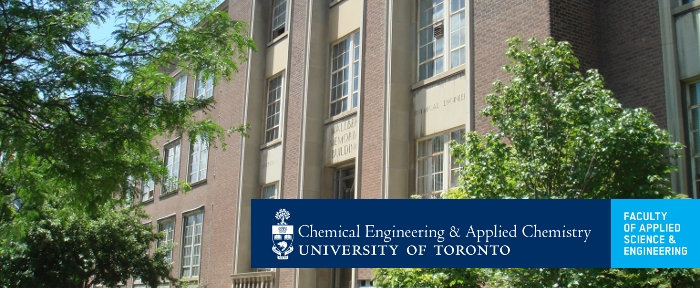 |
||||
 |
||||
News & AnnouncementsInjectable tissue patch could help repair damaged organsA team of U of T Engineering researchers is mending broken hearts with an expanding tissue bandage a little smaller than a postage stamp. Repairing heart tissue destroyed by a heart attack or medical condition with regenerative cells or tissues usually requires invasive open-heart surgery. But now biomedical engineering Professor Milica Radisic and her colleagues have developed a technique that lets them use a small needle to inject a repair patch, without the need to open up the chest cavity. Read full U of T Engineering News story. Read full United Press International (UPI) story. Mining microbes could unlock wealth, clean tailingsWith luck, ingenuity and some scientific know-how, Sudbury's tailings ponds could become a new source nickel, copper and zinc. Researchers from Laurentian University, the University of Toronto and the University of British Columbia met at a symposium to discuss biomining research. "The topic of discussion is developing technologies that aim to remediate waste and effluent waters from mining operations in Sudbury and British Columbia," said Professor Vlad Papangelakis and the project lead of the biomining research. "We hope to recover some value from locked metals in these residues that will offset the processing costs." Read full Sudbury Star story. The best place to treat type 1 diabetes might be just under your skinA group of U of T researchers have demonstrated that the space under our skin might be an optimal location to treat type 1 diabetes (T1D). The new study, led by researchers in the Institute of Biomaterials & Biomedical Engineering (IBBME), involved transplanting healthy pancreatic cells under the skin to produce insulin for blood glucose regulation. “The skin has the advantage of being readily accessible,” said Michael Sefton (IBBME, ChemE) a senior researcher of the study published this week in PNAS. “It is also presents fewer hazards than other transplantation sites.” Read full U of T Engineering News story. BioZone PIs awarded two ORF-RE 8 grantsBioZone PIs are leading two Ontario Research Fund – Research Excellence (ORF-RE) round 8 applications. Each project is worth $12M over 5 years with a $4M contribution from the Ministry of Research and Innovation. Read more. Welcome Pradheepa Baskaran
Training for 4th-year students and new grad students/researchersTraining will take place on Tuesday, September 5 from 9:10am to 12pm in WB116. Please click on the relevant link below for more info:
Safety training for new admin staffAll new admin staff must complete safety training courses. Please visit, http://healthandsafety.chem-eng.utoronto.ca/ and click on "New Administrative Staff" to complete all the required courses. Upon completion of all requirements, submit the confirmation to Gelareh at gelareh.bankian.tabrizi@utoronto.ca. If you have any questions, please contact Gelareh. |
August 18, 2017Volume 34, Issue 26 |
|||
|
||||
CHEM ENG NEWS is a weekly summary of news, events and opportunities for students, faculty and staff of the Department of Chemical Engineering and Applied Chemistry. If you have questions or comments, please contact: external.chemeng@utoronto.ca. Catch up on missed issues by visiting our archive. |
||||
| All contents copyrighted. © 2010 The Department of Chemical Engineering & Applied Chemistry, University of Toronto. | ||||
 This week Pradheepa Baskaran stepped into the position of Financial Administrative Assistant. Before joining the Main Office team, Pradheepa worked with Professor Greg Evans in the SOCAAR group. Before that, she worked at the Hospital for Sick Children in Research Finance. Pradheepa is an alum from U of T, and is glad to contribute to the University as a staff member. During her free time she likes to cook and paint.
This week Pradheepa Baskaran stepped into the position of Financial Administrative Assistant. Before joining the Main Office team, Pradheepa worked with Professor Greg Evans in the SOCAAR group. Before that, she worked at the Hospital for Sick Children in Research Finance. Pradheepa is an alum from U of T, and is glad to contribute to the University as a staff member. During her free time she likes to cook and paint.

